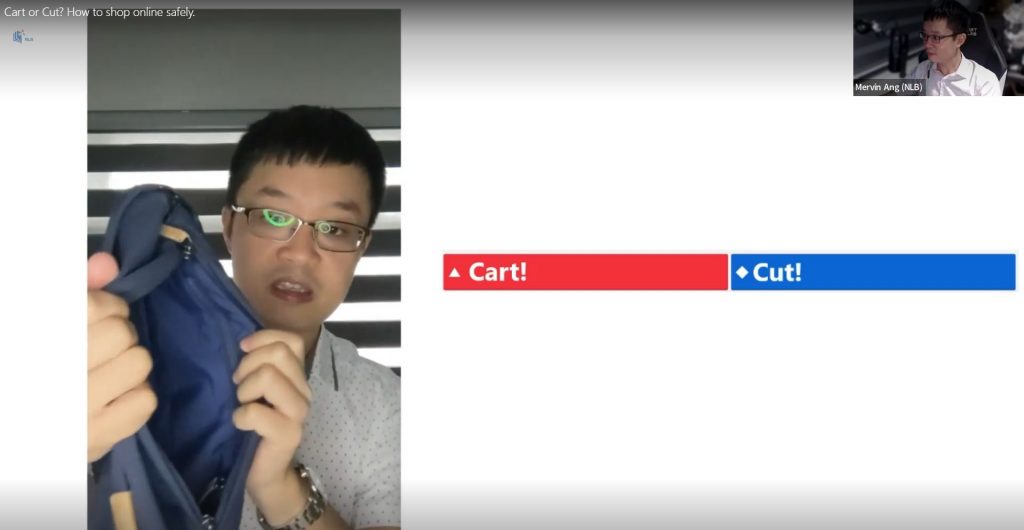What does it take to counter the multitude of challenges in this digital age – from information overload to online safety? Nadia Ramli shares with us on the National Library Board Singapore (NLB)’s month-long programme to nurture Informed Citizenry, in conjunction with the UNESCO Global Media & Information Week 2022 in October, and its Libraries and Archives Blueprint 2025 (LAB25).

With the theme “Be S.U.R.E., Stay Connected”, the S.U.R.E. Celebrates M.I.L. (Media and Information Literacy) event was part of NLB’s initiative to educate the public on information literacy with S.U.R.E. (which stands for Source, Understand, Research and Evaluate).
Thematic programmes
Throughout the month of October, NLB organised panel discussions, workshops and webinars by M.I.L. experts, practitioners and passionate speakers. With each week covering a different M.I.L. topic, there was always something new to learn!
The first week of programmes encouraged the public to discern and use online information sources carefully. Participants learned tips on how to become “fake news busters”, listened to the inspiration behind IN-cube’s Fake News Detective game and understand the role of research in podcasts and films. The demonstration of fact-finding across disciplines highlighted the value of information literacy skills.

In the second week, invited speakers, including cyber experts from government agencies, provided guidance on cyber safety and cyber security. To keep up with the multitude of “11.11” or “12.12” or “Black Friday” sales, we also conducted a workshop on online shopping, its risks and how to apply the S.U.R.E. steps to ensure a safe and genuine purchase. This programme was well-received by attendees who found it “lively” and “engaged participants with real life examples”.

The following week, we focused on raising awareness of groups at risk of online harms. In one workshop, attendees learned about online harms and how to provide victim support through case studies discussions. Another workshop was centred on parenting in the social media age with tips on child-safety controls and boundary setting. Participants were appreciative of the parental control tips for various social media platforms and the candid parenting tips by the presenters.

The month’s celebrations ended with a focus on the news. Panellists provided insights on changing news consumption habits and developments in online journalism. In one panel discussion on memes, audience members were engaged in “meme culture” and the news, with a whopping 17 questions posed during the allocated 15-minute Q&A segment. People were very much interested in understanding this new content format: how to create it, copyright issues and the mix of current affairs and humour. Information professionals and practitioners also attended a panel discussion on how machine learning is harnessed to combat misinformation.
Learning and exploring
The public were encouraged to explore bite-sized content such as news literacy videos and articles on scams as well as participate in our partners’ activities such as the “Bot or Not” quiz and “Fake News Detective” online game.



To foster the spirit of learning beyond our programmes, NLB conducted a lucky draw contest where participants could win prizes by scanning unique QR codes through the online activities or visiting curated displays at selected libraries. This encouraged learning widely (across different topics and formats) or deeply (within a specific topic).

NLB encouraged online conversations through a contest on its Public Library SG Facebook page by inviting users to share creative and engaging ways they would start a conversation on misinformation. This garnered over 100 creative entries which included the use of Singlish (e.g. “Be calm! Don’t kancheong like spider to spread the news without doing some research on the source.”), emphasis on empathy in their approach (“Consider the perspective of the person who shared the story and engage with empathy”) , and sharing practical tips on discerning false information.
S.U.R.E. Celebrates M.I.L. is part of NLB’s ongoing efforts to raise the public’s awareness of the complex media environment and equip them with skills and knowledge to be more discerning media and information consumers.
Contributed by:
Nadia Ramli
Librarian (Outreach), National Library Board
An earlier version of this article has been published in IFLA Information Literacy Section Newsletter – Winter Issue 2022.
